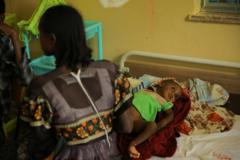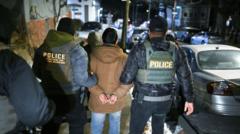The recent waiver issued by the State Department offers a temporary reprieve for PEPFAR, allowing H.I.V. medications to be distributed again, although the program's future remains uncertain and concerns grow over potential resurgence in infections.
U.S. State Department Temporarily Lifts Ban on H.I.V. Medication Distribution

U.S. State Department Temporarily Lifts Ban on H.I.V. Medication Distribution
The Biden administration has authorized a temporary waiver allowing the resumption of H.I.V. medication distribution, addressing fears of a renewed health crisis in low-income nations.
The Biden administration announced a temporary waiver on Tuesday allowing for the distribution of lifesaving H.I.V. medications, providing relief for a crucial global treatment program that had recently been halted. Secretary of State Marco Rubio confirmed the waiver, which permits the resumption of H.I.V. medication distribution through the President’s Emergency Plan for AIDS Relief (PEPFAR), though uncertainties linger regarding its application to preventive drugs and other services.
Despite this temporary relief, the future of PEPFAR hangs in the balance, posing serious risks to over 20 million people, including approximately 500,000 children, who might face loss of access to these critical medications. Experts warn that without continued treatment, millions in low-income countries could progress to full-blown AIDS and face premature death. "We could swiftly return to a situation where the pandemic is surging, akin to the devastating crisis of the 1980s," cautioned Dr. Steve Deeks, an H.I.V. specialist at the University of California, San Francisco, emphasizing the dire implications of such a setback.
The decision to halt H.I.V. medication distribution was made by the Biden administration in a broader context of potential permanent changes to PEPFAR, a program that has, since its inception in 2003, been credited with saving over 25 million lives. Additionally, more than 5.5 million children have been born free of H.I.V. who otherwise would have contracted the virus. The recent waiver offers a glimmer of hope, yet it underscores the ongoing uncertainty surrounding the future of international efforts against H.I.V. and AIDS.























